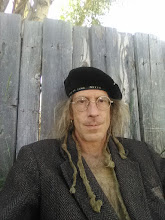It is indeed of note that the nature of this age, when people are generally most unaware of the truly non-dual nature of reality, allows certain transcendent leaps unavailable in those ages when the potential potency of (albeit illusory) dichotomies (think of the power of opposite charges in magnetism and electricity) cannot be accessed by the functioning of the already fully Self-aware conscious mind. If one doesn't (albeit mistakenly) believe in "other" or "Other," the play of relationship between self/Self and not-self/-Self loses some potency and poignancy. If you don't believe in the bad guy, you can't play games of good guy vs. bad guy. Not to say that ignorance of the non-dual nature of reality is better that true Self-awareness. Rather, as people play with a dualistic framework imagined, certain possible constructs become available for the play and array of life lived rather differently than for the truly Self-aware mind.
In truth, awareness that behind all illusions maya may proffer, indeed all is brahman/God/good is a better, more peaceful and fruitful mode of being than the ill prospects of dualism. Regardless, to function within the functionally dualistic constructs of culture and society in this dark age, the Kali yuga, the potency of "opposite charges" ought be considered and sometimes employed as potential if illusory means and power, if without any real attachment to that game of seeming opposition and potently/functionally imagined and constructed dualisms.







